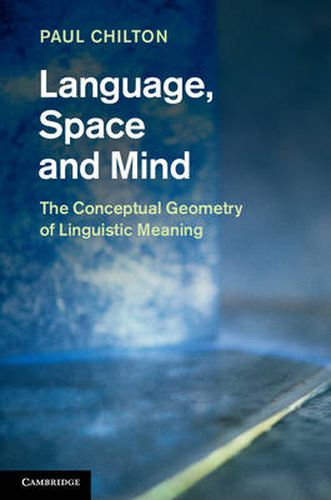Readings Newsletter
Become a Readings Member to make your shopping experience even easier.
Sign in or sign up for free!
You’re not far away from qualifying for FREE standard shipping within Australia
You’ve qualified for FREE standard shipping within Australia
The cart is loading…






The idea that spatial cognition provides the foundation of linguistic meanings, even highly abstract meanings, has been put forward by a number of linguists in recent years. This book takes this proposal into new dimensions and develops a theoretical framework based on simple geometric principles. All speakers are conceptualisers who have a point of view both in a literal and in an abstract sense, choosing their perspective in space, time and the real world. The book examines the conceptualising properties of verbs, including tense, aspect, modality and transitivity, as well as the conceptual workings of grammatical constructions associated with counterfactuality, other minds and the expression of moral force. It makes links to the cognitive sciences throughout and concludes with a discussion of the relationship between language, brain and mind.
$9.00 standard shipping within Australia
FREE standard shipping within Australia for orders over $100.00
Express & International shipping calculated at checkout
Stock availability can be subject to change without notice. We recommend calling the shop or contacting our online team to check availability of low stock items. Please see our Shopping Online page for more details.
The idea that spatial cognition provides the foundation of linguistic meanings, even highly abstract meanings, has been put forward by a number of linguists in recent years. This book takes this proposal into new dimensions and develops a theoretical framework based on simple geometric principles. All speakers are conceptualisers who have a point of view both in a literal and in an abstract sense, choosing their perspective in space, time and the real world. The book examines the conceptualising properties of verbs, including tense, aspect, modality and transitivity, as well as the conceptual workings of grammatical constructions associated with counterfactuality, other minds and the expression of moral force. It makes links to the cognitive sciences throughout and concludes with a discussion of the relationship between language, brain and mind.